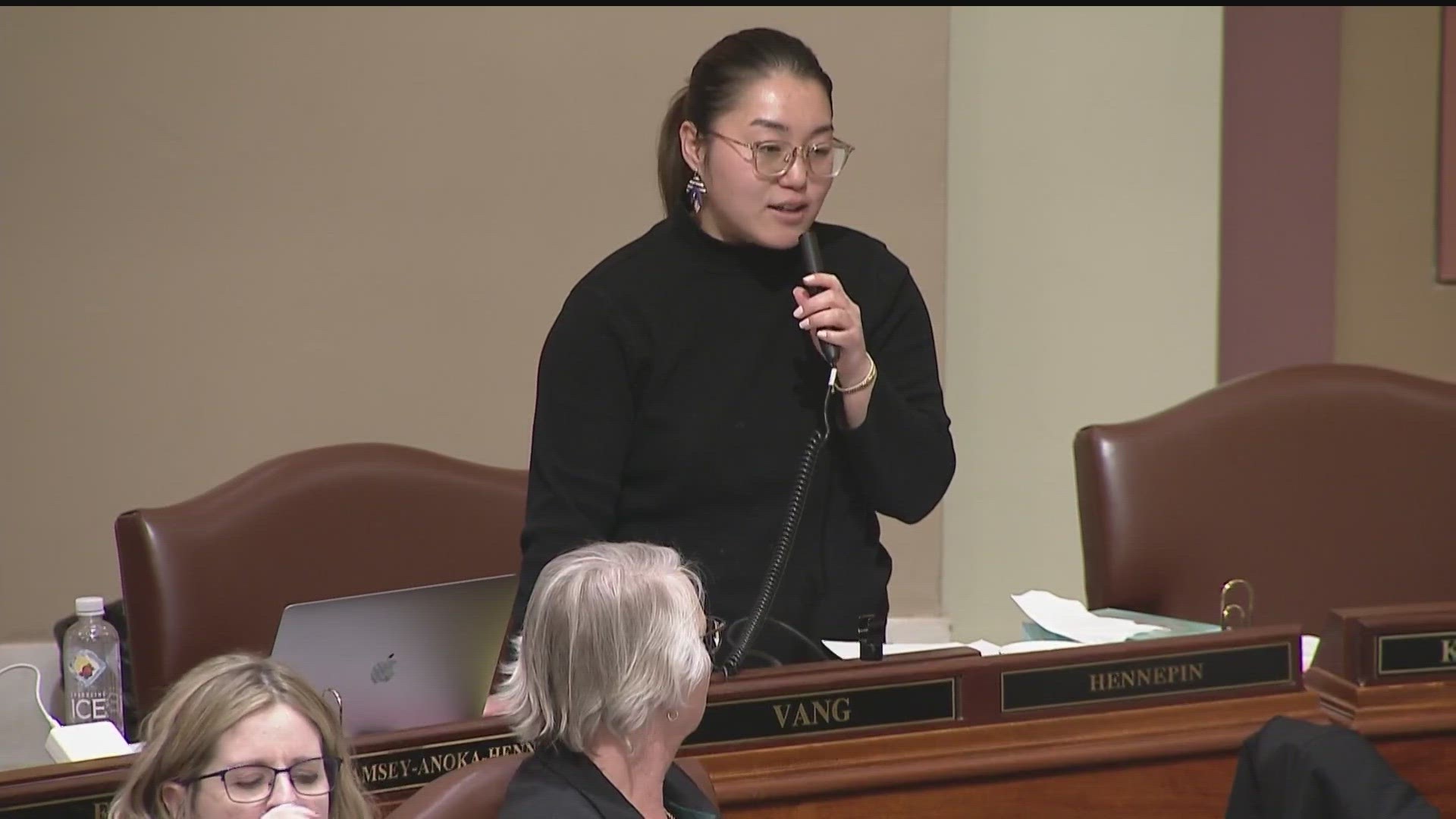ST PAUL, Minn. — A sweeping piece of public safety legislation that passed the Minnesota House Wednesday includes a provision aimed at gathering more data on hate crimes and other incidents of racial bias.
It's a response to community groups that asked for new ways to document bias-motivated attacks outside of law enforcement channels, and to report incidents that create fear but don't necessarily rise to the level of a chargeable offense.
It would require the Minnesota Department of Human Rights to collect information on racially motivated incidents and create a database that would enable the staff to look for trends.
"What my bill addresses is to make sure to document what is happening, truly happening, in our communities," Rep. Samantha Vang, a Brooklyn Park Democrat, told reporters Wednesday.
"My bill allows community members, community organizations to work with the Department of Human Rights to document hate and bias incidents happening on the ground, so communities have a place to show they fear for their safety, that they fear for their life."
Fellow Democrat Rep. Hodan Hassan said some persons don't feel comfortable making reports to police, and law enforcement in some cases won't classify an incident as a hate crime until an arrest can be made and the suspect can be questioned about motive.
"Different groups that say, 'Oh, there’s a lot of hate happening,' and they will say, 'Oh there’s no data about it. No one’s reporting it.' If there’s no data, it doesn’t exist. But communities that live in fear are not going to go out of their way to come to law enforcement and report this."
Hodan and Vang appeared at a Capitol press conference that drew a huge crowd of DFL lawmakers, Attorney General Keith Ellison, St. Paul's Mayor Melvin Carter and many others.
They were there to show solidarity with the Somali immigrant community in the wake of arson attacks on two Minneapolis mosques earlier in the week.
"This is how we show up for each other. This is the Minnesota that all of us believe in. This is the Minnesota that we want," Hassan told reporters.
"But out there is some notion that we don’t belong. I belong in Minnesota. I’m a Minnesotan, but I’m also Muslim Minnesotan. I’m also American, a Somali American, and I’m proud of ALL of my layers."
Rep. Samakab Hussein of St. Paul said it's about more than just one community or one religious faith group.
"It's not only the Muslim community that has been attacked. All faith has been attacked in our state. There’s no place for hate in Minnesota."
Mayor Carter echoed those sentiments.
"An attack against a mosque is an attack against a synagogue. That an attack against a synagogue is an attack against a Black Baptist church, because we all stand here together."
During the debate on the bill, which lasted 10 hours and straddled two calendar days, Republicans objected to the idea of the state gathering data on hate incidents that aren't classified as crimes by police.
"It’s government collecting data about speech that is not criminal and therefore has no compelling state interest in being collected," GOP Rep. Walter Hudson of Albertville asserted.
"In committee it was said we’re going to use this data to identify hot spots of bias, to label communities as problematic, based upon subjective, unverified, un-objective, vague, arbitrary claims of bias!"
Rep. Harry Niska, a Ramsey Republican, offered an amendment that would add the word "criminal" to the word "incident" in that section of the bill. He raised constitutional freedom of speech concerns, noting that private citizens could be placed into the state's bias database by expressing political opinions.
Niska's amendment failed after vigorous debate.
Rep. Anne Neu Brindley of North Branch told of her father-in-law, who was born a Jew in Paris at the brink of World War II. She said he had a near miss when Nazis came to his parents' door asking if Germans lived there.
She went on to draw a comparison between how Nazis used information from neighbors to find Jews to how the state's bias incident database will rely on people accusing others of hate speech.
Rep. Frank Hornstein, who lost all four of his grandparents in the Holocaust, cautioned against Holocaust comparisons out of respect for his ancestors and other victims.
House Majority Leader Jamie Long of Minneapolis discounted those GOP objections.
"It’s really offensive in a week we’ve seen attacks like this, hate crimes like this in our communities, that the first thing our colleagues across the aisle jump to is some sort of conspiracy theory, deep dive hole," Rep. Long said.
"They’re talking about Big Brother, we’re talking about brotherhood, sisterhood, community, trying to keep all of us together and make sure we are protecting each other, and we are tracking incidents so that we know how to best respond."

